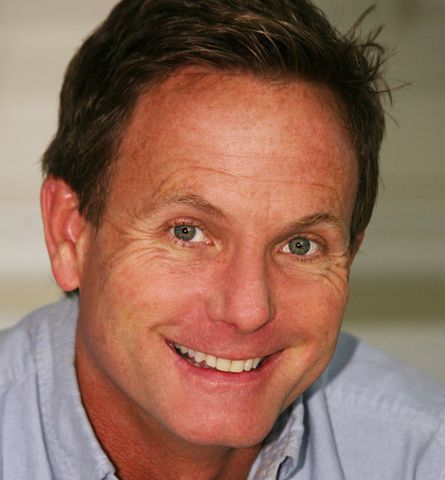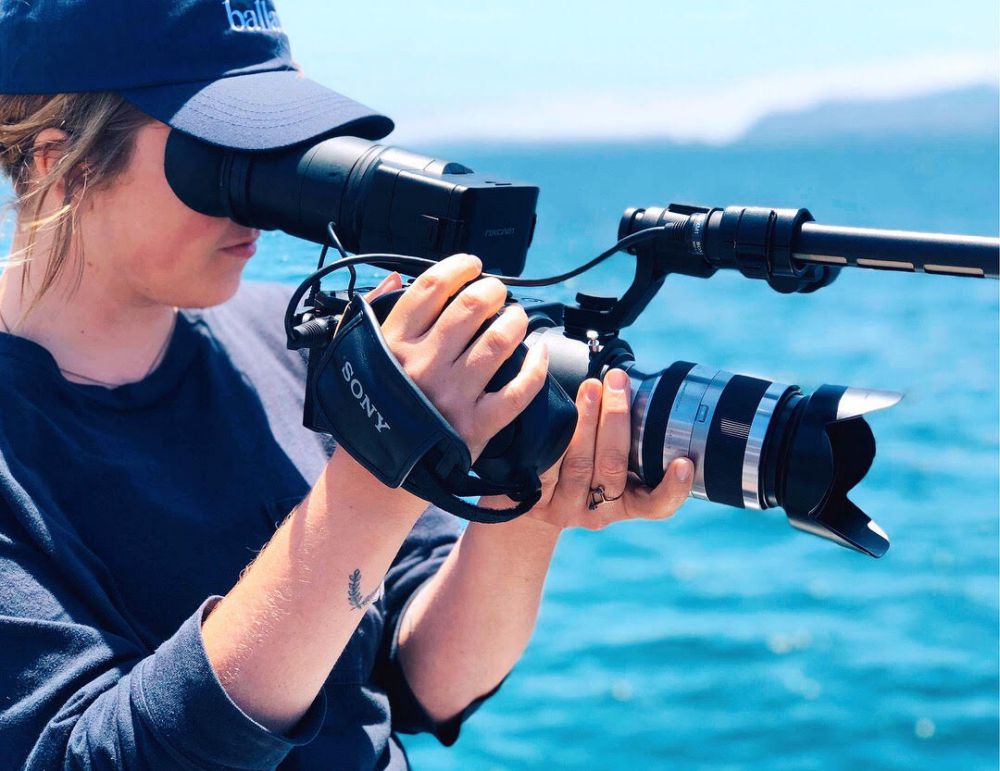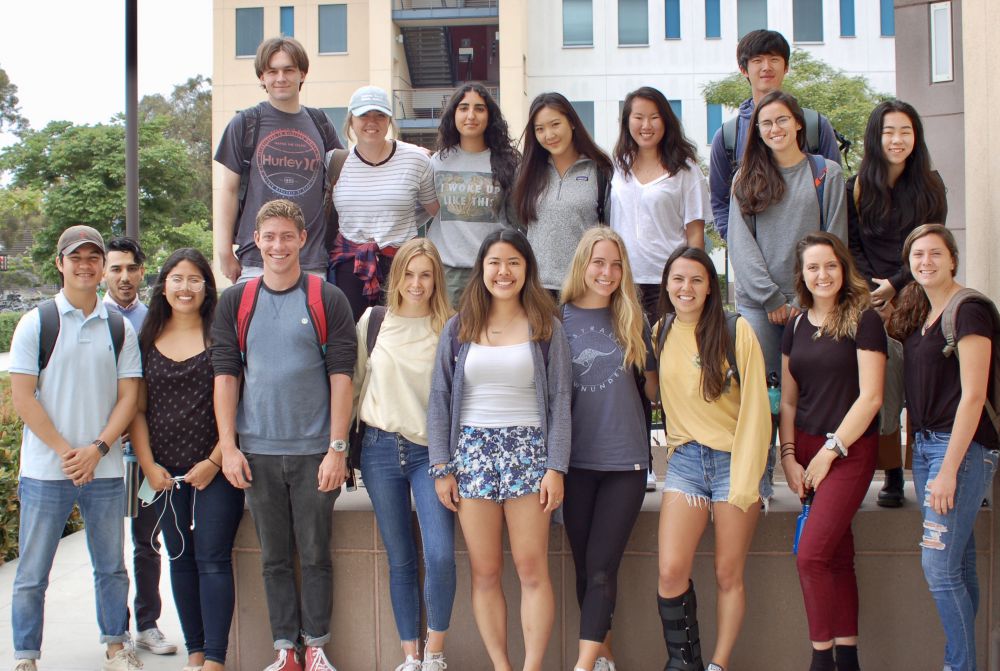Films in the Key of Sea

Archaeology tells us that it’s likely hominids have been exploring the world since before there were Homo sapiens. It’s in our DNA. The latest expression of this fascination will unfold at UC Santa Barbara with a screening of four short films produced by students.
The culmination of the Blue Horizons Summer Program for Environmental Media, the films will premiere Friday, Aug. 24 at 7 p.m. at UCSB’s Pollock Theater. The event is free and open to the public. Reservations, which are recommended, can be made at the Carsey-Wolf Center website.
Now in its 12th year, Blue Horizons offers a diverse group of students from a variety of majors a deep dive into film production over nine weeks. It’s an absurdly short time to teach them the skills needed to make a professional documentary, said Michael Hanrahan, who co-founded Blue Horizons with Constance Penley, professor of film and media studies at UCSB, and Steve Gaines, dean of the Bren School of Environmental Science & Management.
“I’m always excited about the Blue Horizons premier,” Hanrahan said. “Every year, I’m surprised at how much they accomplish in so little time. It’s the hardest film they’ll ever have to make. Everything in their film career from here is going to seem really easy.”
This year, 17 students got an intimate and hands-on introduction to filmmaking from respected professionals. They developed a project, learned about storytelling and got familiar with the tools of the trade: cameras, lighting, sound and editing gear.
Of the four films, two look at elements of the Thomas Fire and deadly Montecito mudslide that followed in January. One, Hanrahan said, “centers on the Bucket Brigade and the community efforts to get Montecito back on its feet after the disaster. Another film is focused on the health impacts absorbed by the immigrant labor community during the Thomas Fire.”
Because Blue Horizons films typically focus on environmental issues, Hanrahan said, focusing on the twin disasters of fire and mudslides made sense.
“We felt the need to respect the gravity of the delicate ecological situation we’re in here on the edge of the continent,” he said. “Years of severe drought; the worst wildfire in California’s history (now surpassed by the Ranch Fire in Mendocino) followed by a mudslide that killed 23 of our people. Going forward in this new world requires our eyes wide open. And we encouraged our students to explore those events.”
Of the other two films, one highlights three young activists in the UCSB community and their resistance to the Trump administration’s plans to expand oil drilling in local waters, while the other takes on the issue of food waste.
Blue Horizons is sponsored by Sony Pictures Entertainment, Carsey-Wolf Center, the Associated Student Coastal Fund, the Bren School of Environmental Science & Management, the Department of Film and Media Studies, the National Marine Sanctuaries Channel Islands, Pond5 and UCSB Summer Sessions.
In addition, the Benioff Ocean Initiative Environmental Media Fellowship program, funded by Marc and Lynne Benioff, provides financial support for Blue Horizons students. This is the first year the organization has contributed to the program.
“For many people, the oceans are a foreign and scary place,” said Douglas McCauley, director of the Benioff Ocean Initiative and an assistant professor in UCSB’s Department of Ecology, Evolution and Marine Biology. “We forget that our fate is inextricably linked to the fate of the oceans. At the Benioff Ocean Initiative, we want to support students at UCSB as they learn the science behind how our environment is changing, and then through programs like Blue Horizons, learn how to effectively tell these stories to others. From Cousteau to ‘Blue Planet,’ film has been the most successful medium for taking people’s hearts and minds under the sea and making them care. We are thrilled to support the work of Blue Horizons and thrilled to see more UCSB students empowered to share the stories that will matter for the future of our oceans.”






